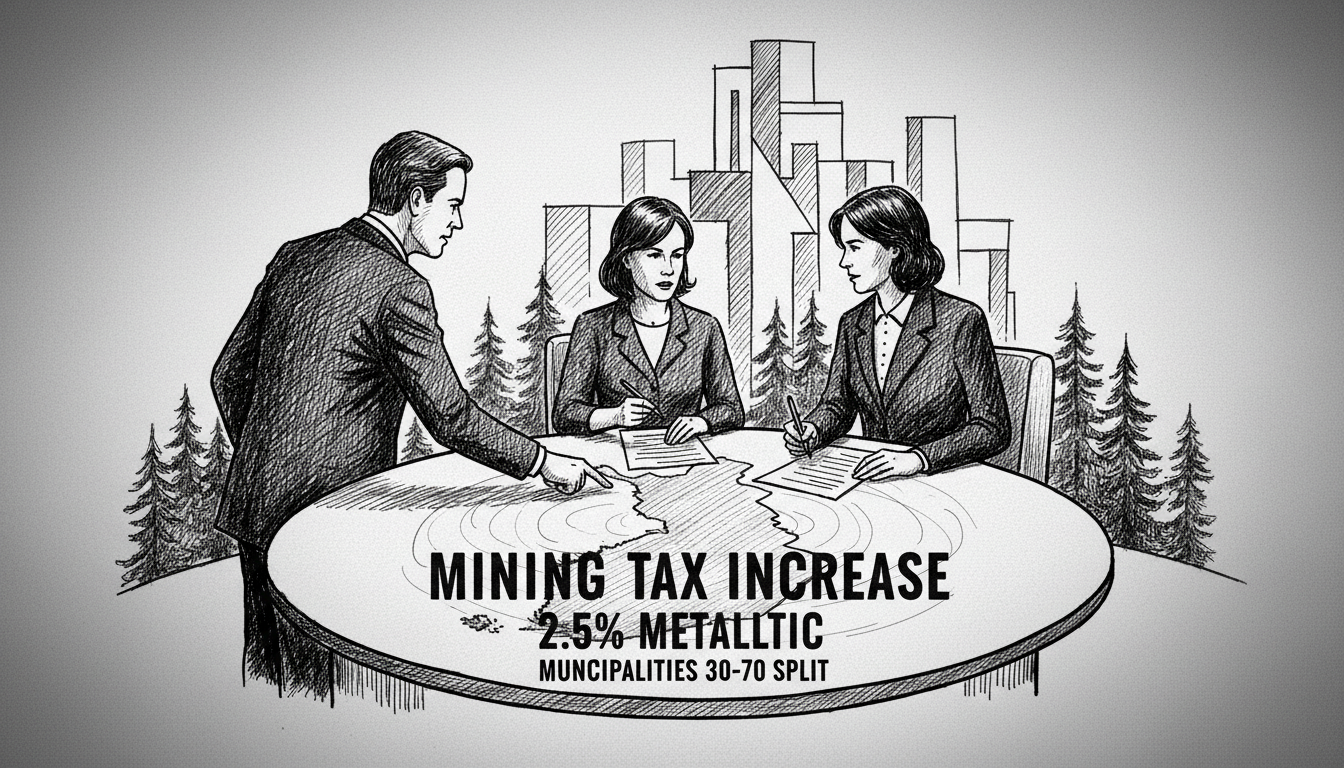Finland's coalition government has reached agreement on a contentious mining tax reform package currently progressing through parliamentary review. The compromise legislation increases taxation on metallic mining minerals from 0.6 percent to 2.5 percent of the metal content value in processed ore. Other mining minerals will see their tax rate rise from 0.2 euros to 0.6 euros per ton of extracted material. The government estimates these adjustments will generate approximately 70 million euros in additional annual state revenue.
Finance Minister Riikka Purra of the Finns Party emerged victorious in internal government negotiations, resisting pressure from coalition partners to delay the tax increases. The National Coalition Party, Christian Democrats, and Swedish People's Party had sought to postpone the tax tightening measures until next year while developing a more industry-friendly taxation model. Minister Purra remained firm in her position, ensuring the legislation advances according to the government's original proposal.
The tax redistribution formula between state and municipal authorities has undergone significant revision during negotiations. Initial proposals allocated 80 percent of mining mineral tax revenue to the state, leaving only 20 percent for municipalities hosting mining operations. The final agreement establishes a 30-70 split favoring local communities. This adjustment addresses concerns from northern mining municipalities about bearing environmental impacts without adequate compensation.
Parliamentary representatives from northern regions had criticized the original distribution model, even from within government coalition parties. They argued the previous arrangement unfairly burdened municipalities experiencing the direct environmental consequences of mining operations. The revised revenue sharing mechanism aims to improve local acceptance while maintaining the government's revenue objectives.
The legislation represents Finland's ongoing effort to balance natural resource extraction with fair compensation for host communities. Finland's mining industry has expanded significantly in recent decades, particularly in Lapland and eastern regions. The country possesses Europe's largest known chromium deposits and substantial nickel, cobalt, and lithium reserves critical for green transition technologies.
Minister Purra expressed satisfaction with the outcome when questioned about the tax package's progression. She described the agreement as excellent and exactly how the process should proceed. The finance minister's comments underscore her ministry's commitment to the original taxation timetable despite coalition partner reservations.
The government parties have also committed to developing a hybrid taxation model for the mining sector. This dual approach would combine production royalties with profit-based taxation components. Industry representatives have advocated for a system where host municipalities receive all royalty portions while the state collects corporate tax shares.
The government's hybrid proposal shares similarities with industry suggestions but maintains distinct characteristics. Preparations for this comprehensive tax reform will commence at the Finance Ministry next year. The current tax legislation is scheduled to take effect in early January, with the new revenue distribution model between state and municipalities beginning the following year.
The parliamentary Finance Committee's tax division will complete its review of the legislation next week. The tax package previously received attention during government budget negotiations, indicating its importance to Finland's fiscal planning. As European nations increasingly focus on critical mineral security, Finland's tax framework could influence similar debates across the continent.
This mining tax agreement demonstrates the Finnish government's capacity to navigate complex policy disputes despite coalition differences. The compromise maintains revenue targets while addressing regional concerns about fair compensation. The outcome strengthens Finland's position as a stable jurisdiction for mineral investment while ensuring host communities benefit more substantially from resource extraction.

